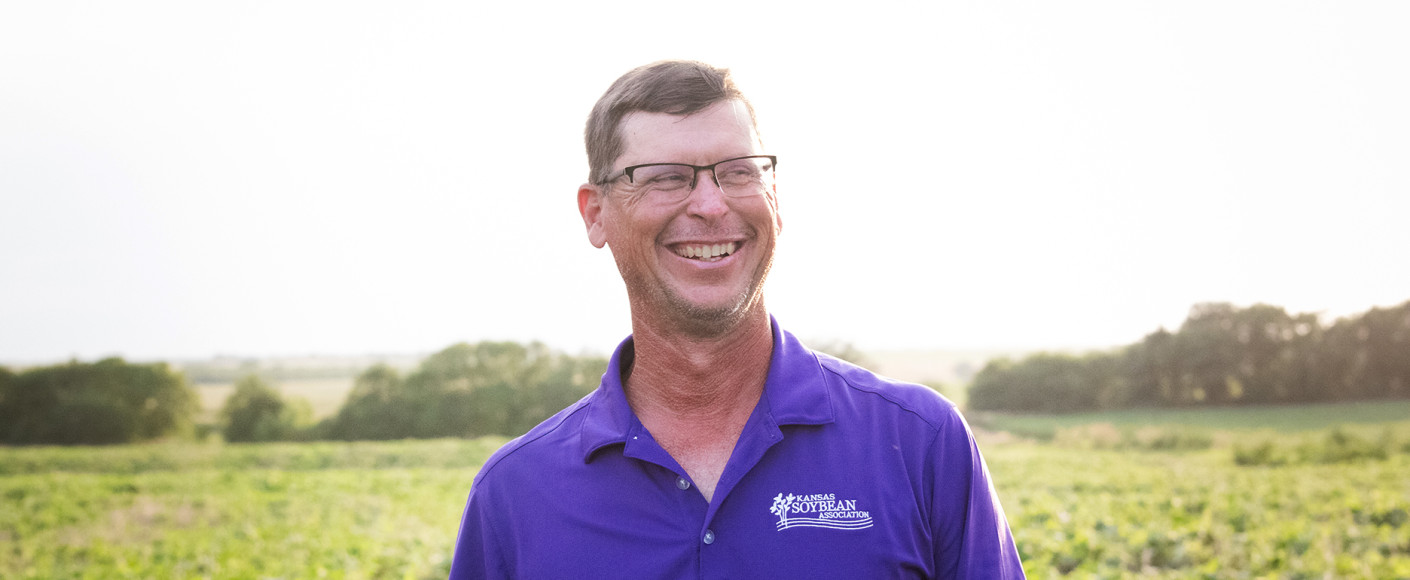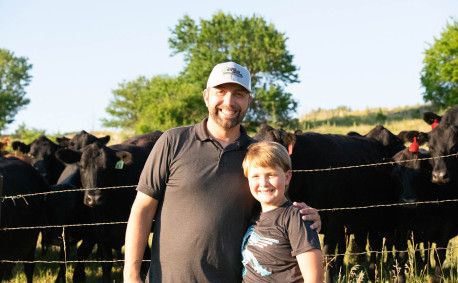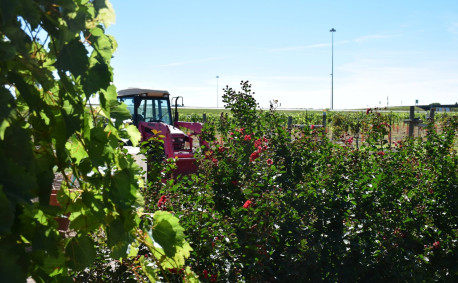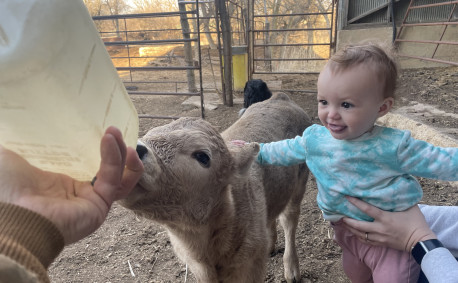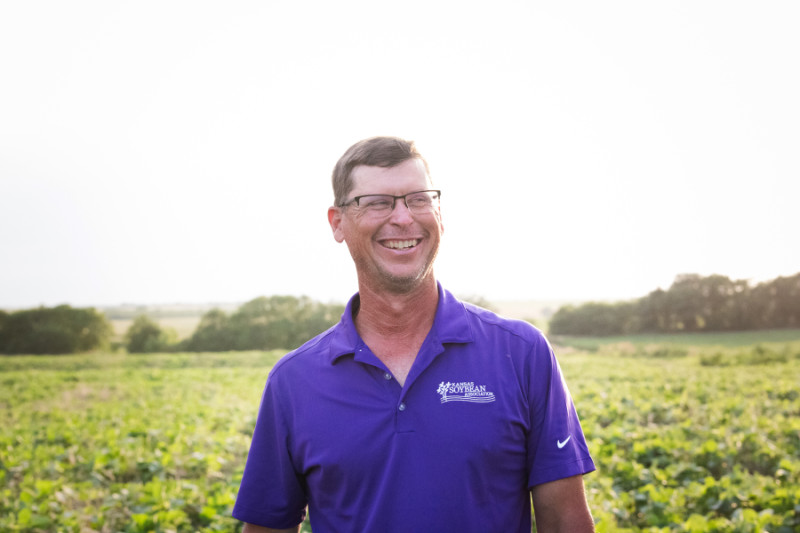Mike Musselman: Sustaining the Land
After growing up on a farm, Mike Musselman wanted to carry on his family tradition by running his own operation someday. Today, he grows soybeans and corn and raises cattle on his farm near Clifton.
“From a young age I always followed my dad around and enjoyed being outside, doing the work and producing wholesome food for the public to consume,” he said.
For more than 20 years, Mike’s passion for incorporating conservation practices and ever-evolving technologies has helped sustain his land while he grows high-quality crops for consumers. He focuses a lot on soil health. With his no-till farming technique, he can grow crops without disrupting the soil. He also uses cover crops and residue management to keep more rainwater on his non-irrigated land. This creates a more sustainable environment and has even led to a higher yield over the years.
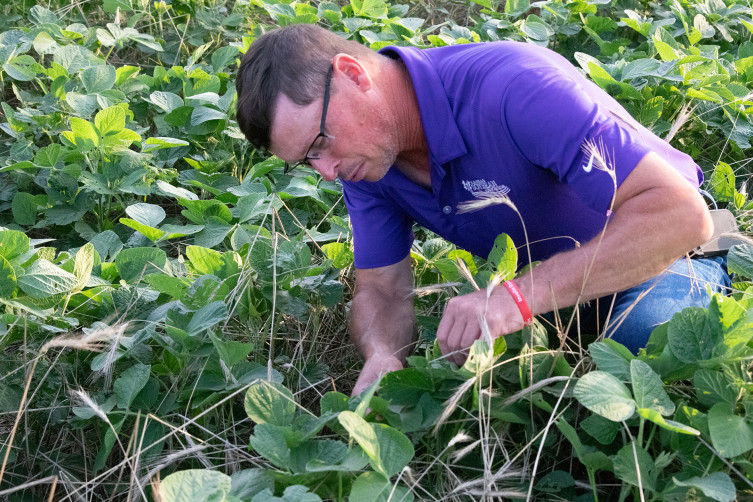 “Back when I started, 40-bushel beans were awfully good soybeans,” Mike explained. “Today, we’re aiming toward 60- or 70-bushel soybeans. It’s all dependent on the rain, but with the cover crops and better soil health, I honestly believe we can reach that goal when the moisture comes.”
“Back when I started, 40-bushel beans were awfully good soybeans,” Mike explained. “Today, we’re aiming toward 60- or 70-bushel soybeans. It’s all dependent on the rain, but with the cover crops and better soil health, I honestly believe we can reach that goal when the moisture comes.”
Like any job, farming has seen many advancements in technology. From moisture monitors to better machines, Mike seeks out new technologies to add to his farming toolkit.
“The first thing I used on a sprayer was a foam marker, but it was difficult to see where it was lined up,” he said. “Since then, we have implemented a light bar and have even started using auto-steer. It’s easier to put in a longer day, just taking one component out of the mix.”
As a member of the Kansas Soybean Association (KSA) board of directors, Mike has seen the effect policy has on technology and other aspects of the agriculture industry and tries to make a positive impact on the agriculture community.
“Belonging to the KSA gives you a voice, not only in the Topeka statehouse, but also in Washington, D.C.,” he said. “Without certain technologies, it would be difficult to change our method of farming practices, and that’s where having a voice comes into play.”
Mike joined the KSA board after a neighboring board member told him about the open position. Since then, he has enjoyed working with other board members and farmers and sharing knowledge. He sees the exchange of ideas as one of the most beneficial aspects of being involved in KSA.
A lifelong learner, Mike said farming has taught him to be patient as he has faced various challenges, including some with his health.
“I was diagnosed with Type 1 diabetes in back in 2002, and we all know how physical farming can be,” he said. “It’s getting easier with our technology and machines today, but putting my health first is my biggest challenge. I think I’m finally getting around to doing that.”
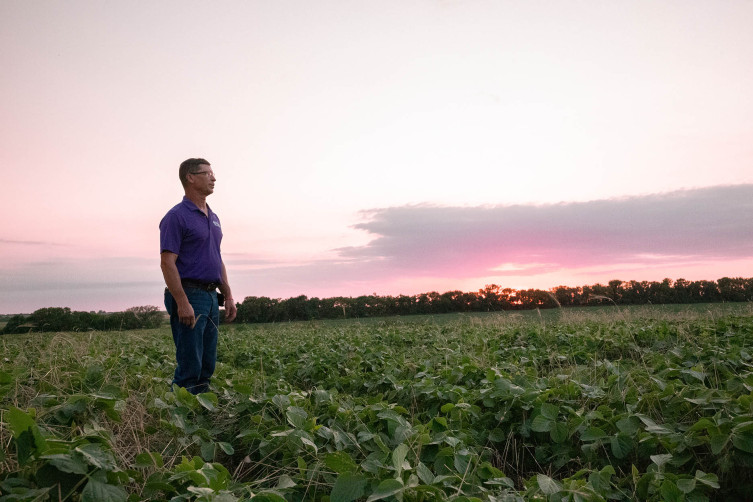 Having grown up on a farm, Mike is passionate about the next generation. He and his wife, Melanie, have raised their four children on the farm, and Mike finds parenting very rewarding.
Having grown up on a farm, Mike is passionate about the next generation. He and his wife, Melanie, have raised their four children on the farm, and Mike finds parenting very rewarding.
“It’s fun to see your crop grow through the different seasons,” he said. “But it’s even more enjoyable to see your kids grow up on the farm.”
This story was written by Reagan Neufeld, an intern with Kansas Soybean Commission.

